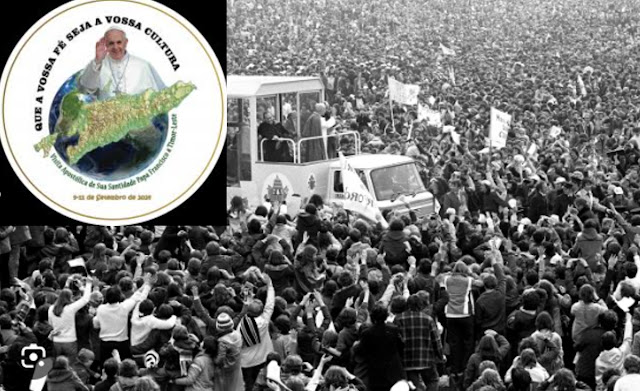The Pope will be visiting Dili from September 9 to 11, 2024. The government,
along with Catholic Church authorities, has been preparing to host a series of
events. According to the schedule, the Pope's major Mass will be held on the
afternoon of September 10th at Tasi-Tolu, a designated event field for
large gatherings. The Pope’s other activities will take place at various
locations, including the National Cathedral, the Dili Convention Center, and
other sites. The Pope will be staying at Lecidere, the Vatican’s residential
compound in Dili.
According to sources quoted by UCANEWS, 700,000 out of 1.3 million Timorese
are expected to attend the Mass on September 10. This indicates that the
majority of Timorese Catholics are profoundly enthusiastic about the Pope’s
visit. However, there are concerns about whether such a large number of people
can be accommodated at the Tasi-Tolu event field. It is likely that some
attendees will follow the Mass through various media, such as TV, social media,
and radio.
The organizing committee is managing pilgrim registrations based on their
domiciles. The 13 municipalities will be clustered and organized according to the
venue layout. If the estimated large number of pilgrims does flock to the venue
on that day, it will represent the largest gathering in the last 24 years.
Dili is a relatively small city, spanning only 7 kilometers from east to
west and 3 kilometers from the coastline to the hillside. Most of the habitable
land is densely packed with housing and buildings. Dili has only two major
avenues in the city center, and there is just one access road leading to and
from Tasi-Tolu, where the Mass will take place.
Plans are in place to suspend city traffic during the events. Only emergency
vehicles will be allowed to operate in Dili, and traffic from the
municipalities will be restricted from entering the city. Public sector offices
and schools will be closed, while private offices and international agencies
will work from home. These measures aim to reduce city traffic and ensure
smooth event operations over the three days.
Instead, people will be required to walk to get around. Pilgrims coming from outside Dili will need to walk from nearby areas to Tasi-Tolu. This will significantly alter the Dili's original face. despite only for three days. There are several benefits to this arrangement, including reduced air pollution, increased physical activity, and improved public health. However, there may also be challenges and impacts. Therefore, the committee needs a detailed and coordinated plan to manage and mitigate any unintended effects on the Pope, the pilgrims, and the Dili community at large.
Can We Learn Something from This?
Yes, the lesson is that as Dili continues to grow, it may face challenges in accommodating such large events in the future. Population growth and urban development are consuming the limited land area, leaving little space for traffic and causing potential issues. Unanticipated population overcrowd and traffic congestion could result in significant social, environmental, and economic losses. Therefore, planning the city with effective public transport, pedestrian-friendly infrastructure, and improved accessibility will make Dili more livable but also more prepared for a better future visits from the Pope or other foreign dignitaries. With that we will avoid total shutdown of traffic that may shock the city's dynamics.
We still need to see the capacity on how the whole system would work to balance the Pope's safety and security while also minimizing the impact on the daily lives of Dili residents.
*I hope this gives you an inspiration.
